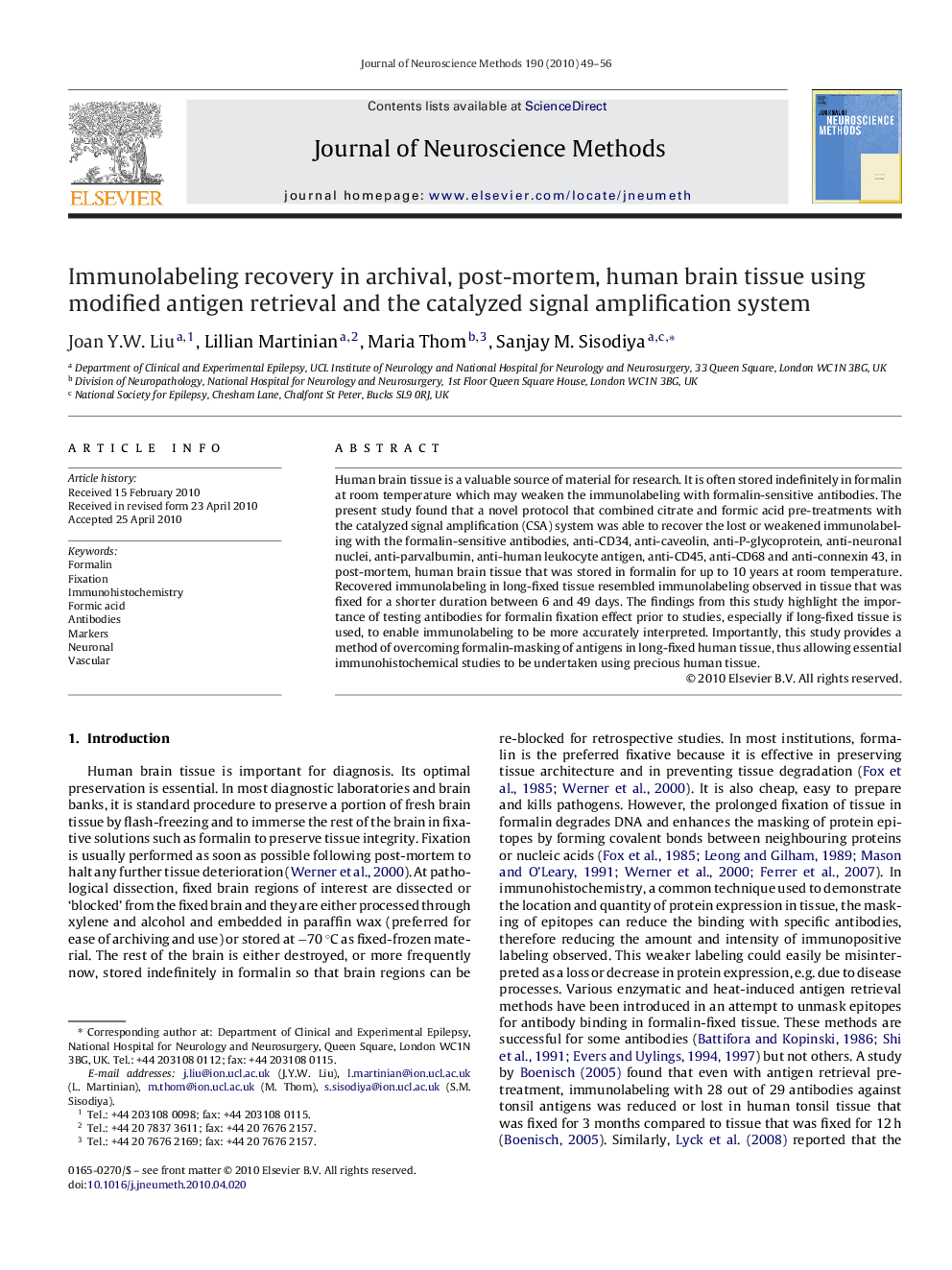| Article ID | Journal | Published Year | Pages | File Type |
|---|---|---|---|---|
| 6269973 | Journal of Neuroscience Methods | 2010 | 8 Pages |
Abstract
Human brain tissue is a valuable source of material for research. It is often stored indefinitely in formalin at room temperature which may weaken the immunolabeling with formalin-sensitive antibodies. The present study found that a novel protocol that combined citrate and formic acid pre-treatments with the catalyzed signal amplification (CSA) system was able to recover the lost or weakened immunolabeling with the formalin-sensitive antibodies, anti-CD34, anti-caveolin, anti-P-glycoprotein, anti-neuronal nuclei, anti-parvalbumin, anti-human leukocyte antigen, anti-CD45, anti-CD68 and anti-connexin 43, in post-mortem, human brain tissue that was stored in formalin for up to 10 years at room temperature. Recovered immunolabeling in long-fixed tissue resembled immunolabeling observed in tissue that was fixed for a shorter duration between 6 and 49 days. The findings from this study highlight the importance of testing antibodies for formalin fixation effect prior to studies, especially if long-fixed tissue is used, to enable immunolabeling to be more accurately interpreted. Importantly, this study provides a method of overcoming formalin-masking of antigens in long-fixed human tissue, thus allowing essential immunohistochemical studies to be undertaken using precious human tissue.
Related Topics
Life Sciences
Neuroscience
Neuroscience (General)
Authors
Joan Y.W. Liu, Lillian Martinian, Maria Thom, Sanjay M. Sisodiya,
